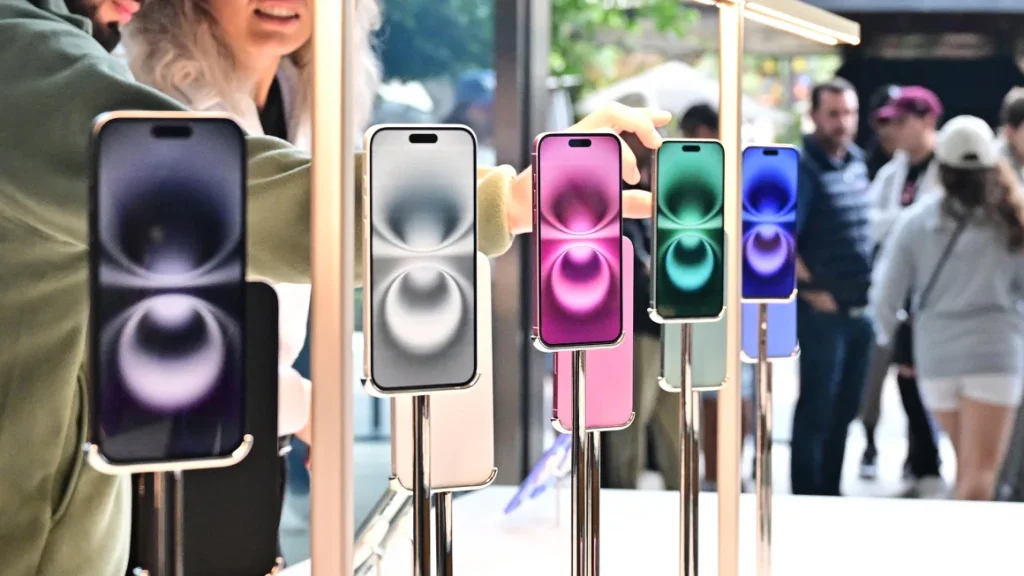
Apple Debuts AI on iPhone: Key Features to Watch Out For
Apple’s much-anticipated artificial intelligence suite, Apple Intelligence, has officially arrived on select iPhones, iPads, and Macs, marking a significant step in Apple’s push into the AI space. This initial rollout is available with the iOS 18.1 update for iPhone 16, iPhone 15 Pro, and Pro Max models, providing users with a sneak peek at Apple’s vision for AI integration across its devices.
The launch underscores Apple’s commitment to reshaping how people interact with their devices. Apple Intelligence includes generative AI capabilities, allowing the iPhone to respond to prompts with creative images, text, and even assistive tools for productivity. By entering the AI space alongside tech giants like Microsoft and Google, Apple aims to carve out a unique niche in the competitive AI landscape.
Key AI Features in Apple’s Latest Update
The rollout of Apple Intelligence brings several groundbreaking tools to the iPhone experience, each designed to make daily tasks easier and more intuitive:
- Writing and Editing Tools: Users can enjoy enhanced proofreading and summarizing options with new writing tools, allowing for faster document review and edits on the go.
- Siri’s Conversational Upgrade: Siri’s functionality has been expanded, making it sound more natural and conversational. Siri now appears as a glowing light, engaging users with more lifelike interactions.
- Smart Photo Search and Cleanup: The Photos app has undergone an AI transformation, enabling users to find photos and videos by describing what’s in them. The “Clean Up” feature allows users to edit photos easily, even removing unwanted visual elements.
These features aim to streamline various aspects of daily iPhone use, from editing and organization to AI-powered interactions that make tasks feel more personal and efficient.
Apple’s Strategy in the AI Market
Apple has been gearing up for this AI transition for months, debuting Apple Intelligence’s capabilities at its annual Worldwide Developers Conference in June. With the iPhone 16’s advanced chip design tailored for AI, Apple is poised to make its mark in the AI sector. Unlike its competitors, Apple’s approach to AI emphasizes user privacy and device-based intelligence, which could appeal to its loyal consumer base.
However, some analysts are cautiously optimistic. Dan Ives, a managing director and senior equity analyst at Wedbush Securities, believes that Apple Intelligence will become a central part of Apple’s ecosystem over time, impacting millions of users worldwide. Despite slower-than-expected iPhone 16 sales, Apple is optimistic that integrating AI into its devices will ultimately strengthen user loyalty and boost future sales.
Limitations and Upcoming Features for Apple Intelligence
While Apple’s initial AI rollout is impressive, some users may find the current feature set limited. For instance, Apple’s Genmoji, which allows users to create personalized emoji, and the Image Wand, an AI-based sketch-to-image tool, are expected to be released in December with the iOS 18.2 update. Apple Intelligence’s initial features are currently only available in American English, with plans for additional languages, including French and Japanese, to be added in 2025.
CFRA Research’s Angelo Zino pointed out that consumers might need more time to adopt the new AI features. “Consumers might not fully realize the benefits of Apple Intelligence until these features become widely known,” Zino said in a recent CNN interview. With these expanded tools on the horizon, Apple expects to attract both loyal users and new, AI-curious consumers.
Market Reception and Future Implications
Although Apple’s foray into AI has sparked interest, it faces challenges in driving immediate consumer demand. Apple’s recent sales data reflects a dip in iPhone 16 pre-orders, with production cuts signaling a cautious approach toward market demand. Analyst Ming-Chi Kuo of TF International Securities estimates a 10 million unit cut in iPhone 16 production, likely due to the market’s slow response to this latest model.
Still, Apple’s AI debut has significant long-term potential. By integrating AI into its core products, Apple is laying the groundwork for a future where AI plays a central role in user experiences. Ives, the Wedbush analyst, envisions this as a “multi-year journey” that will define Apple’s trajectory in the AI arena, aligning with consumer demands for smarter, more intuitive devices.
For additional details on Apple Intelligence and future tech rollouts, explore KenKou-Land’s tech insights.



